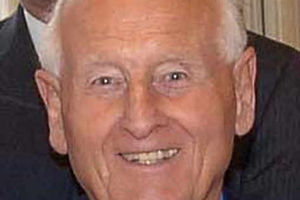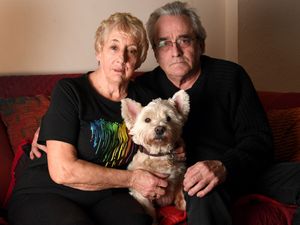Key former Express & Star manager Jim Churchward dies aged 89
A highly respected former circulation manager, who helped the Express & Star become Britain's biggest evening regional newspaper, has died.

A highly respected former circulation manager, who helped the Express & Star become Britain's biggest evening regional newspaper, has died.
Jim Churchward was just a month shy of his 90th birthday when he died in New Cross Hospital in the early hours of Wednesday.
Former colleagues today paid tribute to the father of one who had also served in Burma in the Second World War.
He joined the Express & Star's circulation department in the mid-1930s and returned to the paper after the war ended. He was appointed circulation manager in 1959 and later became a director. He retired in 1981 and was succeeded by Tom Malpass.
Mr Churchward, of Tettenhall, remained a cricket, rugby and golf enthusiast throughout his life and leaves a wife, Doreen, daughter Penny, two grandchildren and a brother, George.
He was a member of Wolverhampton Rugby Club for 72 years and played for the club in his youth.
Mark Kersen, a former deputy chairman of Express & Star parent company the Midland News Association, who retired in 1995, said: "Jim was part of what I regard as a hugely talented and dedicated bunch of people at the E&S who brought it to the position of the biggest regional paper in Britain in the 1970s, a position it holds to this day.
"Jim's philosophy as a circulation manager was absolutely straightforward. It takes an awful lot of work to get a sale but any fool can lose one.
"He was relentless in his pursuit of customer service."
Family friend, Frank Knowles, aged 78, who worked with Mr Churchward as circulation sales manager, said: "He was a wonderful boss. All the circulation staff at the E&S held him in high esteem."
Mr Churchward served as a sergeant in the Worcestershire Regiment in the battle of Kohima which halted the Japanese advance on India in 1944. He described the hand-to-hand fighting vividly in an Express & Star interview in 1994 but modestly declined to be named.
He was part of the British 14th Army — the so-called "Forgotten Army" — whose deeds were overshadowed in 1944 by the D-Day landings.





